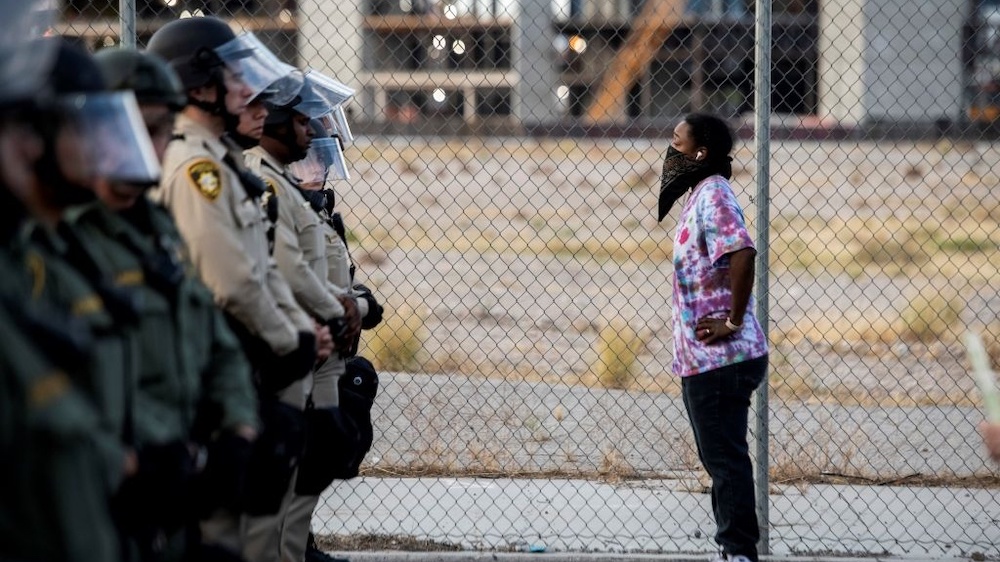If you’re interested in sharing your opinion on any cultural, political or personal topic, create an account here and check out our how-to post to learn more.
____
Last week’s insurrection of far-right extremists that stormed the Capitol have spurred important questions about the state of American democracy and the deep divisions in American society. It also, however, intensified two interconnected concerns that have been growing since the killing of George Floyd last May — the continued threat posed by white supremacy and the challenge of establishing greater police accountability.
President-elect Joe Biden and his advisors have already prioritized racial equity as a central plank of the administration’s "Build Back Better" approach. The racial justice platform aims to improve economic opportunity, increase home ownership and advance comprehensive legislation to reform how law enforcement operates in Black and brown communities. The transition website states that such legislation would establish “a nationwide ban on chokeholds; stopping the transfer of weapons of war to police forces; improving oversight and accountability, to create a model use of force standard; [and] creating a national police oversight commission.”
For criminal justice policies such as these to be successful, the new administration will require access to quality open crime and demographics data from states and local police departments. And for broader changes to achieve racial equity, we will need better data on a wide range of discriminatory practices that affect Black and brown Americans. The new administration may find that providing more open, usable government data — a movement that began when Joe Biden was in the Obama administration — can be a linchpin of their racial justice strategy.
The Center for Open Data Enterprise (CODE) — a 501(c)3 nonprofit whose mission is to maximize the value of open and shared data for the public good — has just published a Briefing Paper on Policing Data. This paper is the first of a planned Open Data for Racial Equity series exploring how open data can provide needed insights in a variety of sectors such as fair housing, access to healthcare, environmental justices and employment opportunity. The paper makes the urgent case that open policing data can inform criminal justice reforms and provide insight on police involvement in marginalized communities. The kinds of strategies CODE recommends to open policing data may be models for data-driven action in other areas of racial justice as well.
Policing is the first interaction that many Black communities have with the justice system and can mark the entryway into the "school-to-prison pipeline," and other aspects of the court and prison systems. As more and more police officers respond to incidents involving individuals experiencing homelessness, mental health crises or challenges in the education system, understanding policing in the United States requires better data. And more research must be conducted to determine what that data says about policing.
To better understand what data is currently out there, CODE reviewed a number of civil society databases and federal data sources and recorded several important use cases demonstrating how open data can be leveraged to improve predictive policing, identify bias-based policing in culpable departments and quantifiably measure the impact of use-of-force policies. Unfortunately, the localized nature of police data and legacy data systems make it very difficult to uniformly measure crime, access consistent police data or comprehend what reforms are working and what reforms are not.
The Briefing Paper on Policing Data has identified key civil and state-level sources of policing data, outlined the policy landscape, and provided recommendations to improve and apply criminal justice data. The paper provides a deep-dive into data use cases, cross-cutting issues and challenges, immediate opportunities to improve police data and key questions to determine future progress. Initial findings from the paper recommend that policymakers should identify and open high-value sources of police data to the public across the country. Data could include officer-involved shootings and complaints against officers.
Despite these milestones, more discussion and best practices are needed. What kinds of federal oversight are needed to create better standards and data sharing for police departments? What kinds of nationally available criminal justice and policing data would improve police accountability and create more inclusive departments? How can data better help policymakers and researchers understand the disproportionate use of violence by police against Black and brown communities? Many researchers find these questions particularly difficult to answer in the current data landscape. But doing so could help measure police accountability and advance the ongoing fight for racial equity.
Until then, CODE will continue exploring the value of open data in addressing other inequities in housing, economic opportunity, health, climate, and other areas. Each of these directly impacts Black and brown communities and could use data to better address long standing issues that have perpetuated racial inequities. CODE’s planned series of Open Data Briefing Papers will illuminate the landscape of open data and serve as tools for stakeholder engagement, policy development, actionable next steps, and support for potential future Open Data Roundtables in these areas. The series will only touch the tip of the racial equity iceberg, but can provide a starting point for an administration intent on addressing racial equity in its first 100 days.
Effective policy demands actionable data. And actionable data, especially on policing, will need to be accessible to as many stakeholders and practitioners as possible.
____
Temilola Afolabi, Research Associate, and Paul Kuhne, Roundtables Program Manager, work with the Center for Open Data Enterprise (CODE), a nonprofit based in Washington, DC whose mission is to maximize the value of open government data for the public good. Contact Temilola at [email protected] for more information.
